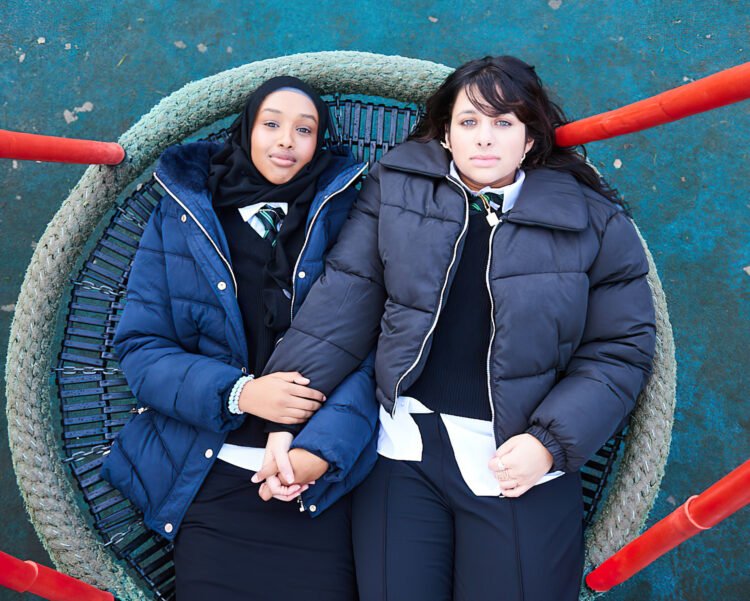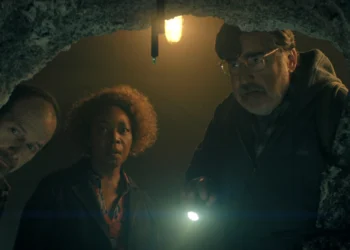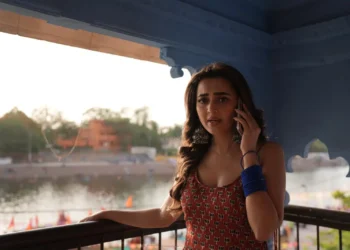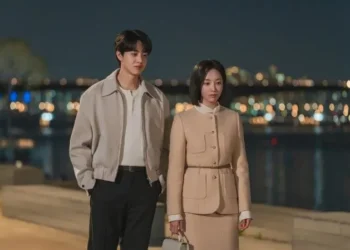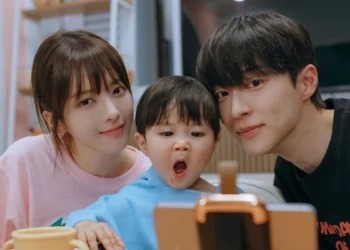Nadia Fall’s latest drama, Brides, presents a thought-provoking and heartbreaking exploration of a subject that remains as sensitive as it is unsettling—the radicalisation of young girls who left the UK to join Islamic State fighters under the guise of marriage and belonging. Screenwriter Suhayla El-Bushra crafts a narrative that is both urgent and intimate, drawing audiences into the story of two teenage friends whose lives shift irreversibly when they embark on a dangerous journey toward Syria.
The phenomenon of so-called IS brides captured intense media interest nearly a decade ago, most memorably in the case of Shamima Begum, who left London at the age of 15 to join the group. While much of the reporting has been critical and sensational, often harsher toward girls than their male counterparts, fictional retellings such as this drama attempt a different route. Instead of moralising, the story aims to uncover the vulnerabilities, emotions, and misplaced hopes that led teenagers—barely out of childhood—toward such devastating choices.
The Journey of Doe and Muna
At the heart of Brides are two young women: Doe, played with quiet depth by Ebada Hassan, and Muna, portrayed with energy and volatility by Safiyya Ingar. The pair leave the UK under the pretence of an ordinary trip, complete with return tickets to avoid suspicion. Their travels take them first to Istanbul, before a fraught journey leads them toward the unpredictable landscape of the Syrian border.
What makes Fall’s direction so impactful is the way she balances tension with moments of dark humour. When the girls step off the plane in Turkey, their path quickly becomes muddled, revealing the naive but dangerous gap between their expectations—shaped by carefully curated online propaganda—and the harsh, ambiguous reality awaiting them.
Interspersed with this unfolding journey are flashbacks that provide a stark contrast. Scenes of their lives back in the UK illustrate struggles with racism, sexism, and isolation, all fueling their vulnerability to extremist narratives. Particularly powerful is a near-final sequence where the two first meet at an art class—a glimpse of innocence and genuine connection that makes their tragic trajectory feel even more devastating.
A Drama About Friendship, Vulnerability, and Disillusionment
Though the film avoids graphic depictions of forced marriages or the horrors directly tied to life under IS, its closing moments strongly imply the crushing disappointment and brutal reality that contrasts with the promises of belonging, love, and purpose sold on social media. In doing so, Brides underscores a chilling truth: behind the headlines and political debates are real teenagers whose need for connection was exploited in the most destructive way possible.
Occasionally, the pacing between the girls’ arrival in Turkey and their approach to the border loses intensity, but the overall strength of the performances and the direction keeps the film emotionally compelling. Both Hassan and Ingar bring warmth and authenticity to their roles, ensuring that the story never dissolves into caricature or judgement.
An Intense Look at Radicalisation and Lost Innocence
Brides is not just a film about radicalisation; it is equally about friendship, identity, and the fragility of youth at a time of social and personal upheaval. By humanising its protagonists, the drama manages to challenge the way society perceives IS brides, pushing audiences to think beyond sensational headlines.
With its blend of poignancy, sharp performances, and thematic urgency, Nadia Fall’s Brides is a drama that resonates long after the credits roll.
Brides will be released in UK and Irish cinemas on 26 September.


